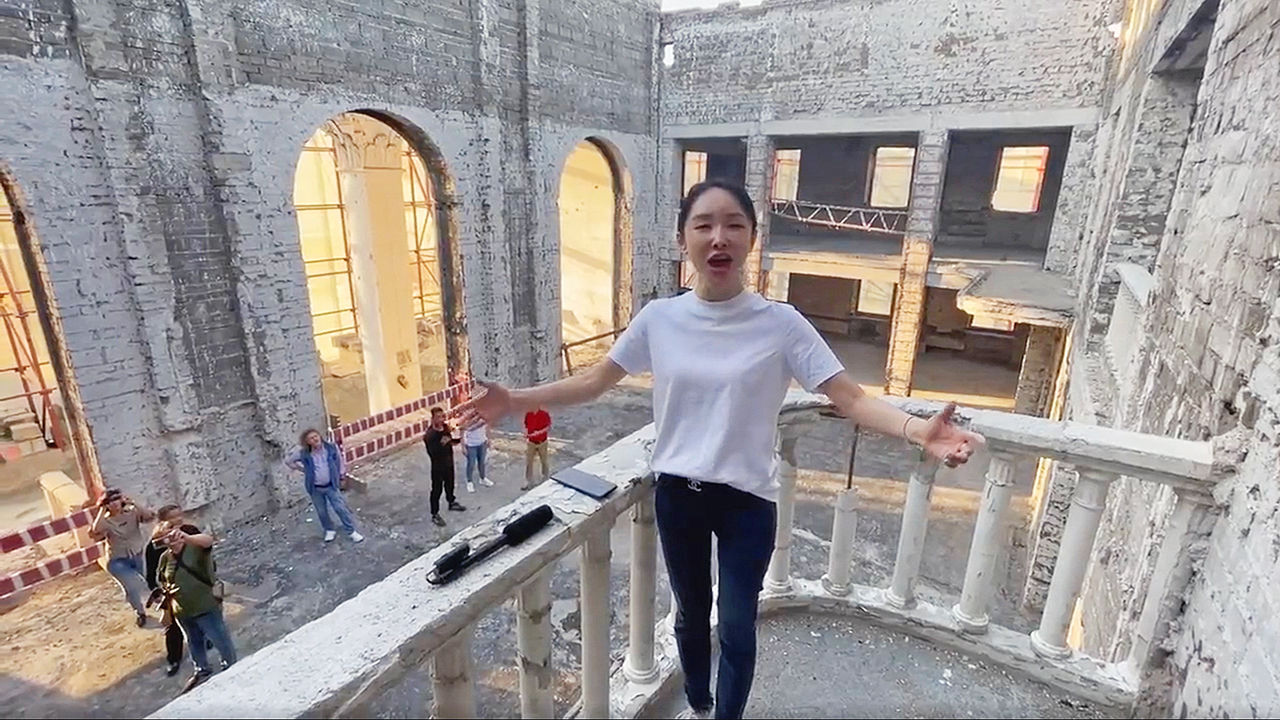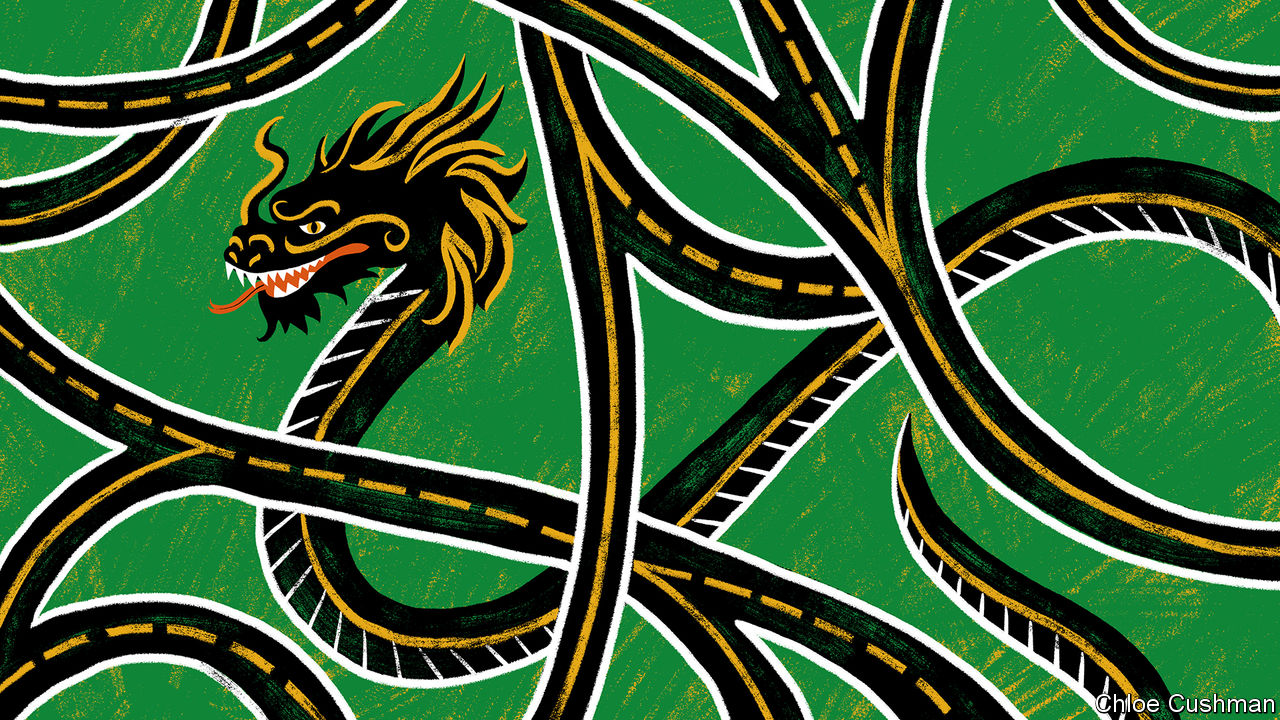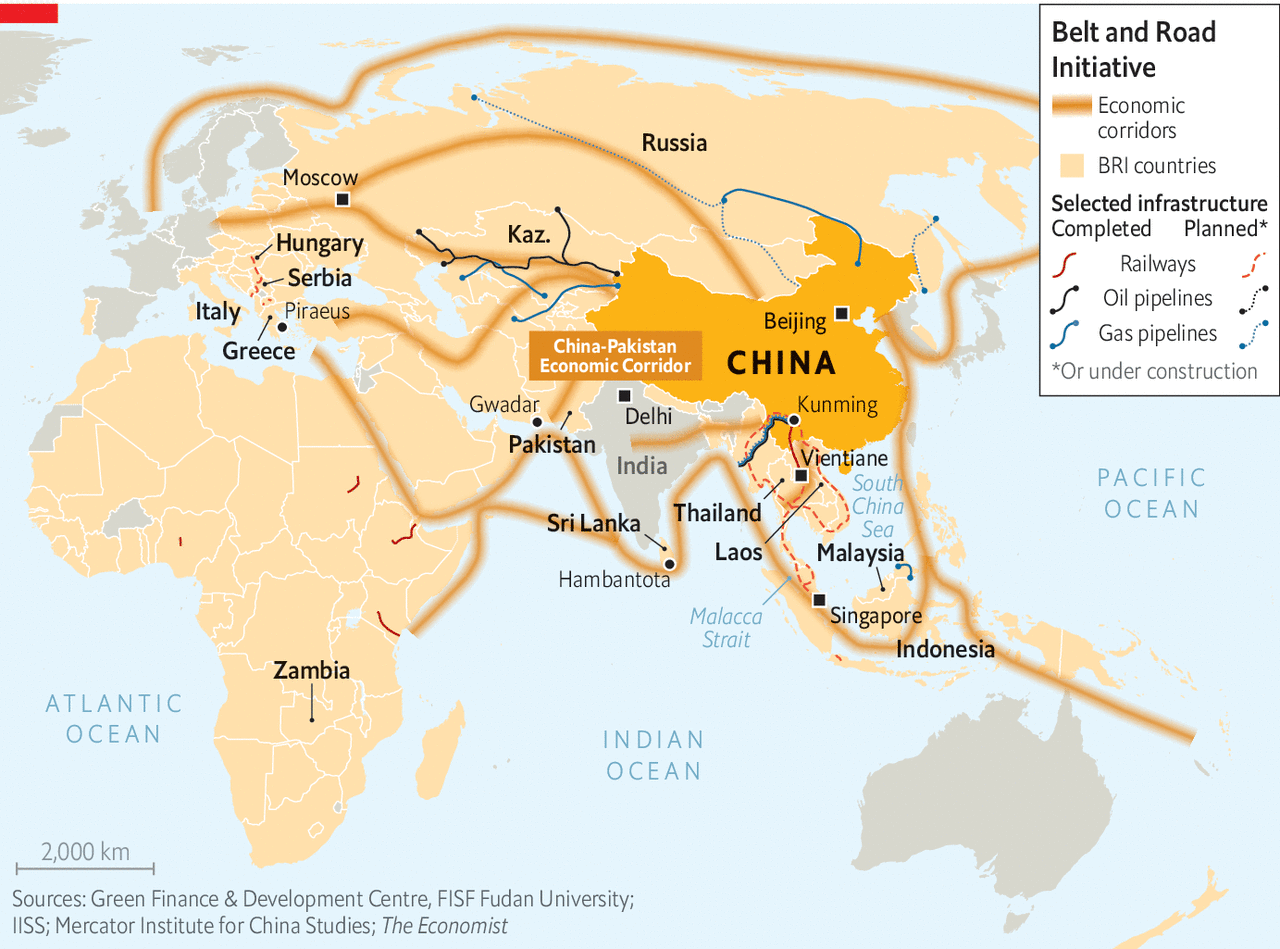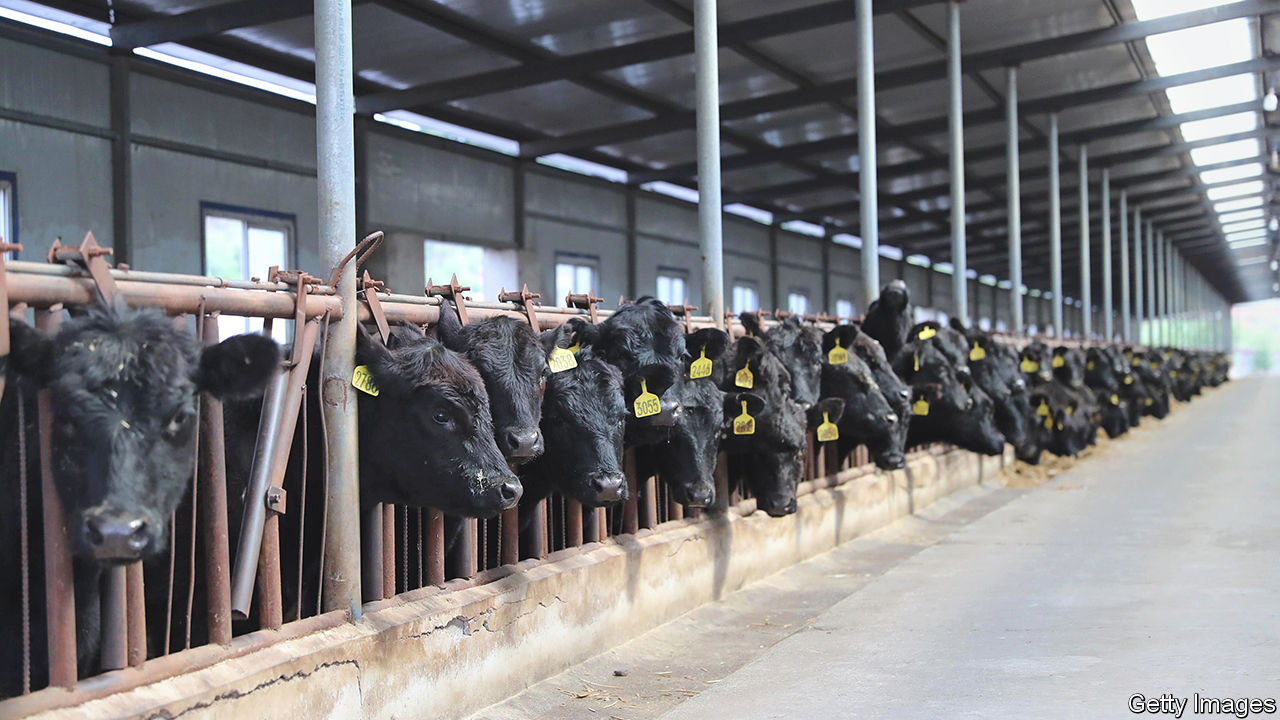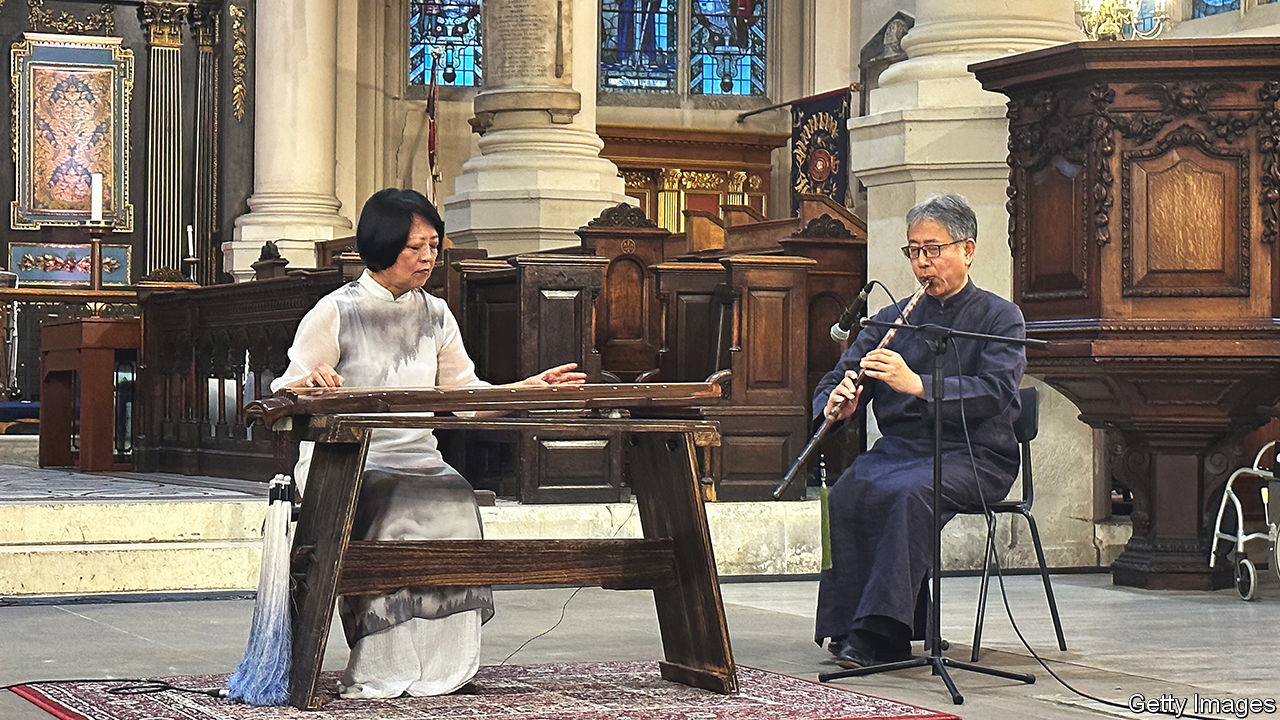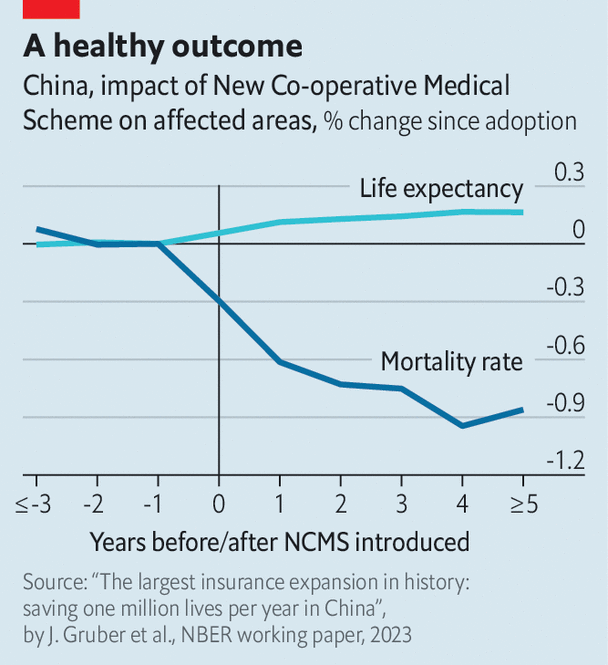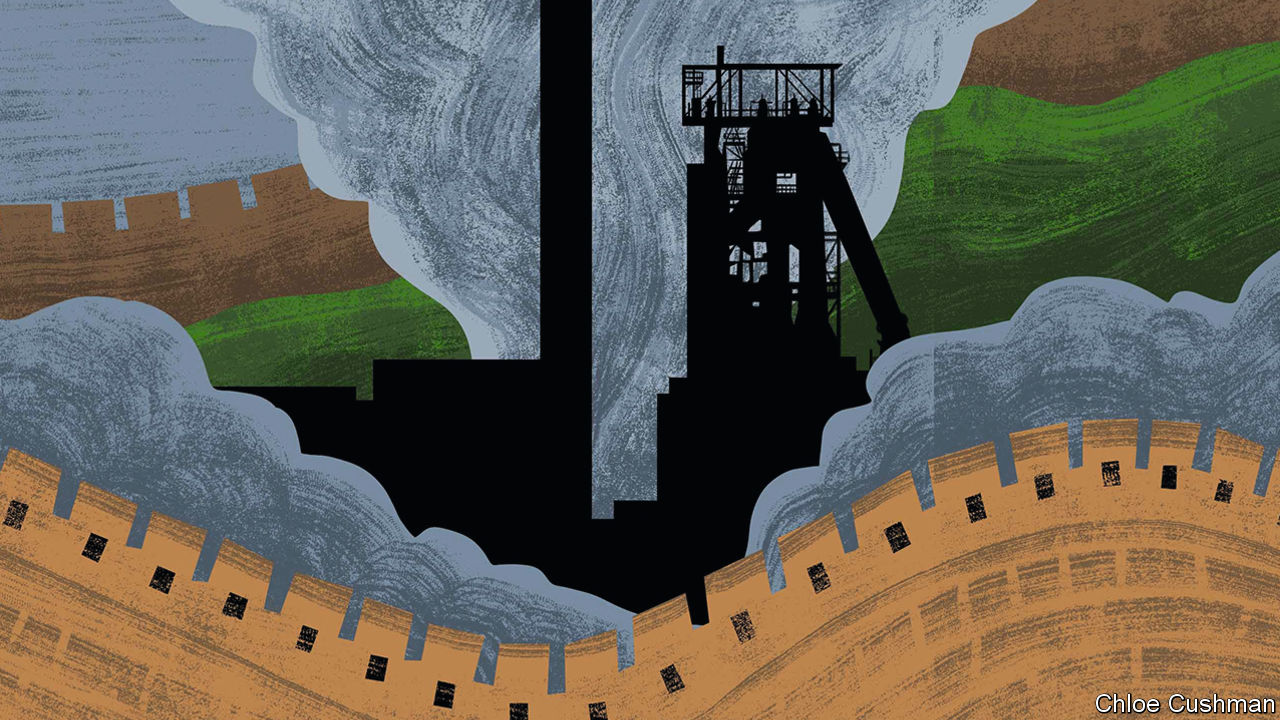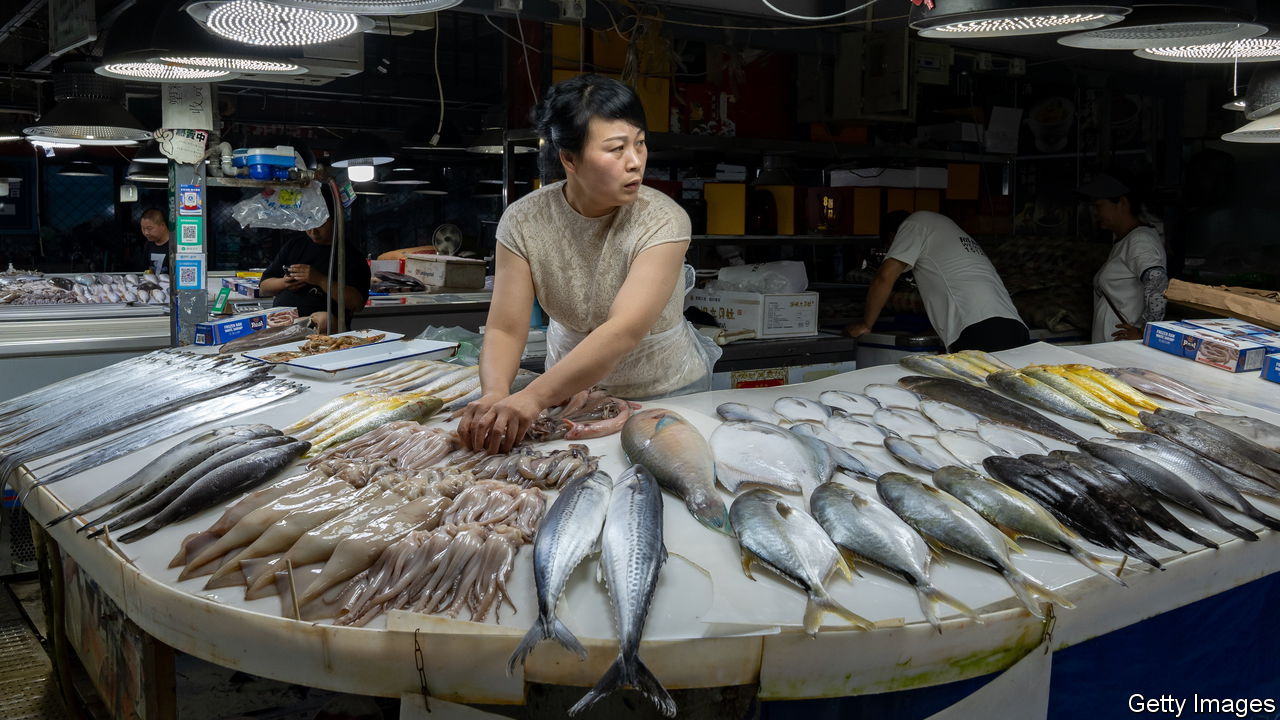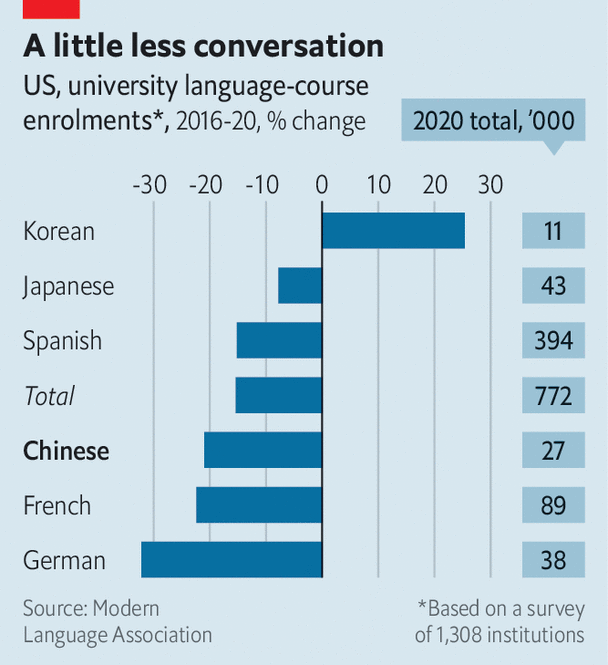Listen to this story.Enjoy more audio and podcasts on iOS or Android. Your browser does not support the <audio> element. UNDER XI JINPING, the Communist Party is building the most ambitious police state in China’s history, with the legal powers and surveillance tools to bring order and ideological conformity to every corner of daily life. Special attention is being paid to grassroots law enforcement, notably via China’s system of administrative punishments: a vast array of sanctions, including physical detention, that may be imposed by police without a court hearing or…
Category: The Economist
A Chinese opera star’s ode to Russia—from a Ukrainian bomb site
It looked like a spontaneous tribute to Russia. Standing in the bombed-out shell of a theatre in the Ukrainian city of Mariupol, a Chinese opera singer, Wang Fang, belted out a Soviet-era ballad (pictured). In March last year many Ukrainian civilians were killed in a Russian attack on the building. So when a video of the 38-year-old’s performance this month circulated online, it sparked a furore. Unlike their government, some Chinese people prefer to side with Ukraine. The Economist
The Belt and Road, as seen from China
For years Xi Jinping has been inviting the world to hitch a ride on the “express train of China’s development”. The slogan is a Xi favourite, wheeled out when the Communist Party chief talks to foreign leaders about economic co-operation, especially via the Belt and Road Initiative (BRI), a global infrastructure programme launched a decade ago this month. To foreign critics, such swaggering talk is a blunder. Yes, they aver, local elites in poor countries may welcome Chinese envoys bearing loans to pay for new airports, dams and other infrastructure.…
The path ahead for China’s Belt and Road Initiative
THERE WAS little hint in the speech that Xi Jinping gave on September 7th 2013 in Kazakhstan that he was thinking of a concrete-pouring binge across the world, spurred by hundreds of billions of dollars in Chinese loans and investment. No one predicted that the project would become a defining feature of his foreign policy and dramatic symbol of China’s rise as a global power. Mr Xi talked of building an “economic belt” along the ancient “silk road” linking China with Europe. He called for better infrastructure and reduced barriers…
China has embraced pets, but animal welfare is still a problem
Mao Zedong may have regarded them as a bourgeois luxury, but pets are on the rise in China. Around 116m cats and dogs share a home with humans in Chinese cities. It is not always clear who is holding the leash. At a recent pet fair in Shanghai items for sale included a spa machine for cats and ball gowns for dogs. Analysts say young people are increasingly choosing “fur babies” over children. China’s pet industry grew by 25% last year. Care for these four-legged friends is being displayed in…
China’s Communist Party has co-opted ancient music
At a church in the heart of London the soft tinkle of a guqin, or ancient zither, rings out. The audience at the London International Chinese Music festival (pictured) is told that the sound of this seven-stringed instrument will transport them back in time and bring them joy and peace. Mastery of the guqin, which dates back 3,000 years, was once considered a must for the elite in imperial China. Even Confucius played it. These days the Communist Party is hoping the guqin and other traditional instruments will also bring…
An old health insurance scheme in China may have saved millions
In a country of 1.4bn people, even small improvements in health care can have a big impact. That appears to have been the case with the New Co-operative Medical Scheme (NCMS), a health-insurance plan for rural Chinese that was launched in 2003 and folded into a more comprehensive programme in 2013. Though it is perhaps best known for being stingy, the NCMS saved millions of lives, according to a new working paper by Jonathan Gruber of the Massachusetts Institute of Technology, Junjian Yi of Peking University and Mengyun Lin of…
When China thought America might invade
Listen to this story.Enjoy more audio and podcasts on iOS or Android. Your browser does not support the <audio> element. When foreign foes threaten, an impregnable fortress is worth more than a comfortable home. Time and again, that doctrine guided China’s Communist Party in its first decades of rule. Under Chairman Mao Zedong, talk of invasion was a constant. In those dark times, the usual priorities of peacetime government—feeding and clothing the masses, striving to raise living standards—were all too often neglected. In their stead came campaigns to ready China…
China is stoking anger over Japan’s release of nuclear waste water
On August 24th the government of Japan began releasing water into the ocean. This is not just any water, mind you, but treated waste water from the Fukushima nuclear plant, which was destroyed 12 years ago by a tsunami. So Japan has dealt with the situation carefully, putting the liquid through an advanced filtration and dilution process. It still contains a potentially harmful radionuclide called tritium. But experts say the levels are so low that this is not a concern. Japan wants to release more than a million tonnes of…
Why fewer university students are studying Mandarin
Ten years ago Mandarin, the mother tongue of most Chinese, was being hyped as the language of the future. In 2015 the administration of Barack Obama called for 1m primary- and secondary-school students in America to learn it by 2020. In 2016 Britain followed suit, encouraging kids to study “one of the most important languages for the UK’s future prosperity”. Elsewhere, too, there seemed to be a growing interest in Mandarin, as China’s influence and economic heft increased. So why, a decade later, does Mandarin-learning appear to have declined in…

